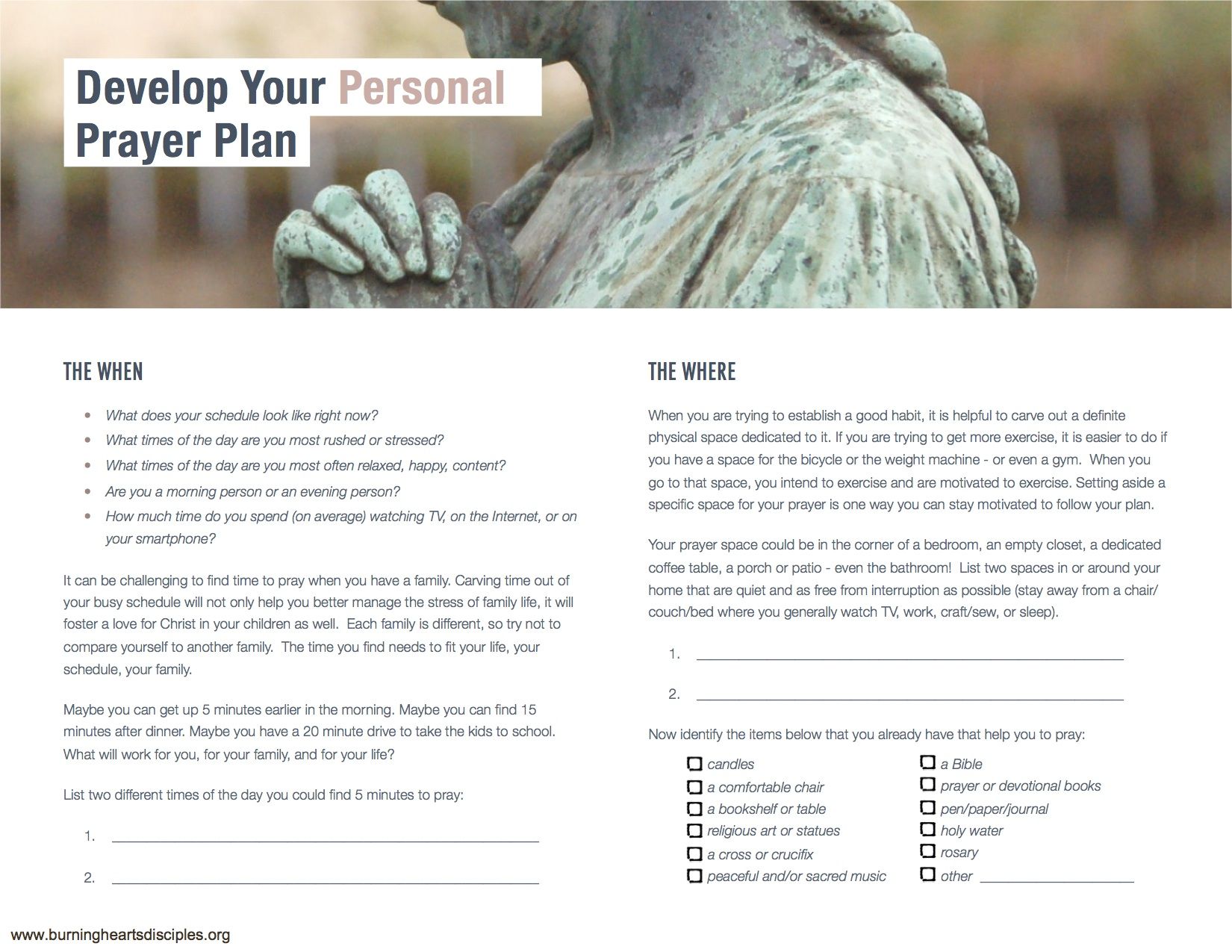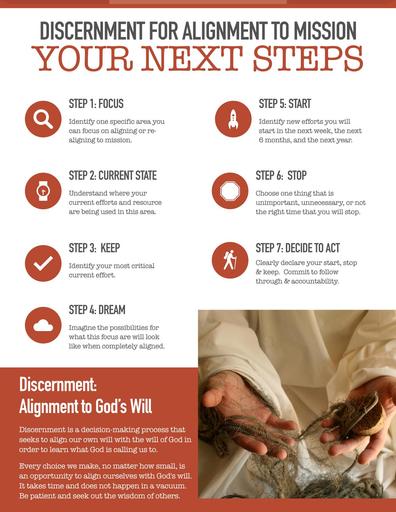FREE Prayer Plan Worksheet
It all Starts with Prayer
Without prayer, our Lenten observances (getting ashes, giving up sweets, abstaining from meat on Fridays, dropping coins in the Rice Bowl) are traditions without meaning.
St. Clement of Alexandria (third century) defined prayer as "conversation with God" - a conversation that never ends. In the Scriptures, St. Paul says: "Pray at all times" (Eph 6:18); "Pray without ceasing" (1 Thess 5:1); and "be constant in prayer" (Rom 12:12). He saw prayer as endless conversation.
Mike Aquilina understands that this call seems a tad unrealistic to many of us:
That seems to be asking a lot, but it's really the best way to think about it. If we are to pray this way, we have to form the habit of prayer. And, like any good habit or skill, prayer requires a sustained effort, over time, with much repetition.
Many people bristle when they hear about discipline in prayer. They think prayer should always be spontaneous. And sometimes prayer does come spontaneously, as when we experience some great joy or great sorrow. But spontaneity is most often the fruit of discipline. It is usually the best-trained musicians who are able to improvise freely. To do anything well takes time, dedication and patient endurance through sometimes-tedious exercises.
When we underline each of our Lenten actions with regular and consistent prayer, they become more than just childhood traditions or empty rituals. Our prayer gives us the strength to stick to our fast. Our prayer draws us into a closer, more intimate relationship with God. Because of this relationship, we find ourselves so grateful for all the blessings God has given us that we are eager to give to others.
A prayer routine during Lent prepares us to truly enter in to the liturgical celebrations of Holy Week and Easter. With regular prayer, Mass becomes more meaningful, our sacrifices have a greater purpose, and we are open and eager to give in charity.
The most effective way to discipline our prayer life is by following a program, a schedule of sorts — what the late Cardinal Joseph Bernardin called "a game plan for the Christian." The best time to set up such a plan is during Lent.
Create Your Prayer Plan
John Piper, in his book Desiring God, says that a main hindrance to prayer is our lack of planning.
"If you want to take a four-week vacation, you don't just get up one summer morning and say, 'Hey, let's go today!' You won't have anything ready. You won't know where to go. Nothing has been planned."
Take the time to create a plan for your Lenten prayer plan. The plan should be written down and, if applicable, agreed upon and discussed by everyone in your home.
pdf Download the free Prayer Plan Worksheet here (1.18 MB)



